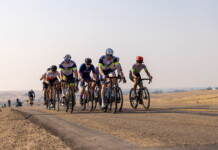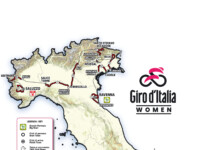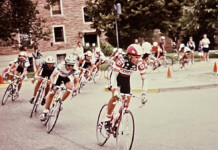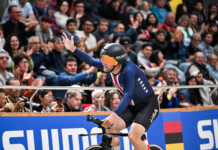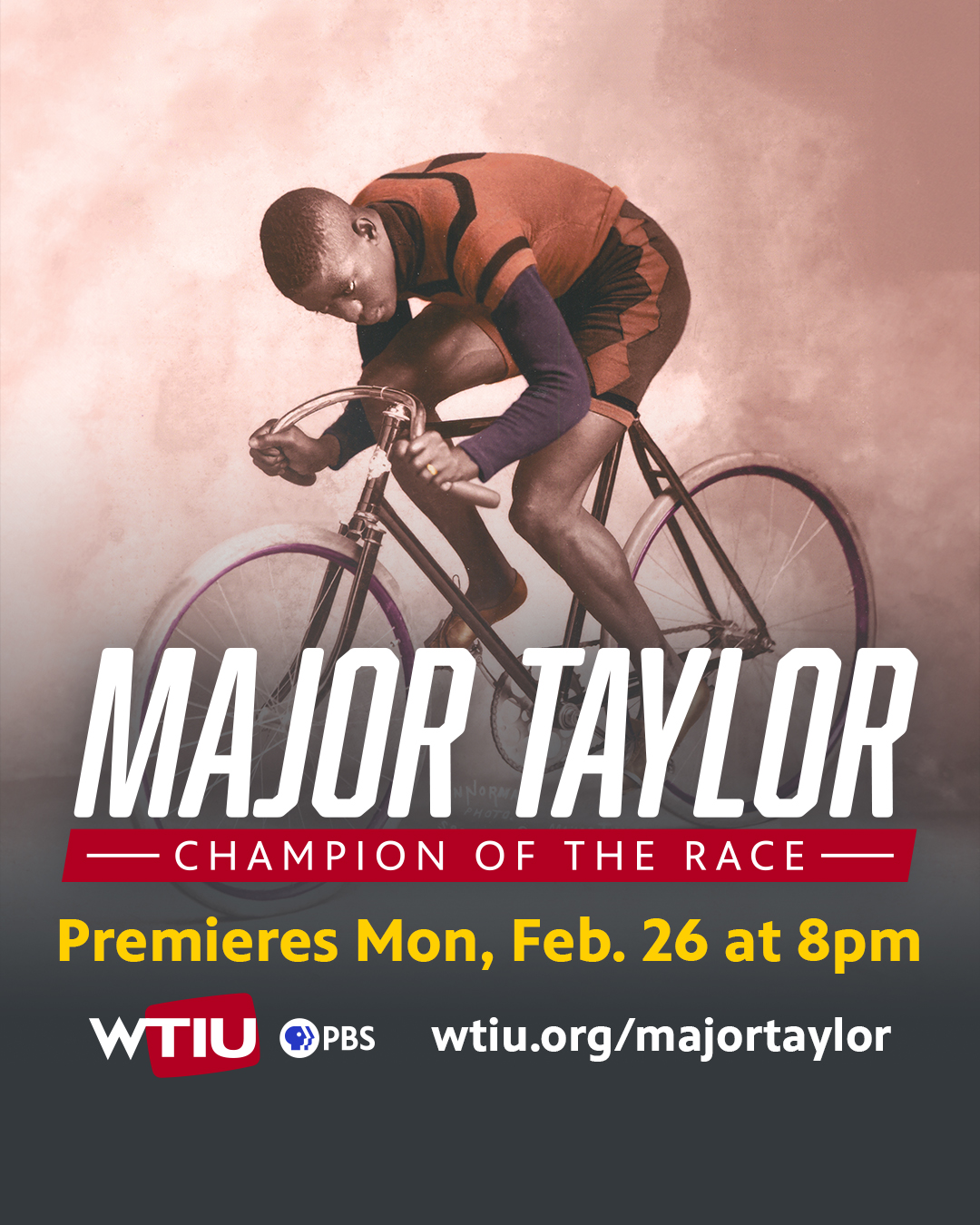An American Gold Rush
By Dave Campbell — I discovered the sport of cycling in 1981 and had long enjoyed the Olympics. American cyclists at that point, however, had not won an Olympic medal since 1912! (1) George Mount finished an enormously promising sixth in road race at the 1976 Games in Montreal, which many saw as a sign that our long medal draught would soon be over. Our 1979 Junior World Champion Greg Lemond held great promise for a medal in 1980, but the American Government boycotted the Games to protest the Soviet invasion of Afghanistan. Lemond, like Mount before him, turned professional and headed off to Europe to contest the World’s oldest and most prestigious races. The Olympics at this time were strictly for amateurs so our 1984 medal hopes would have to come from elsewhere.
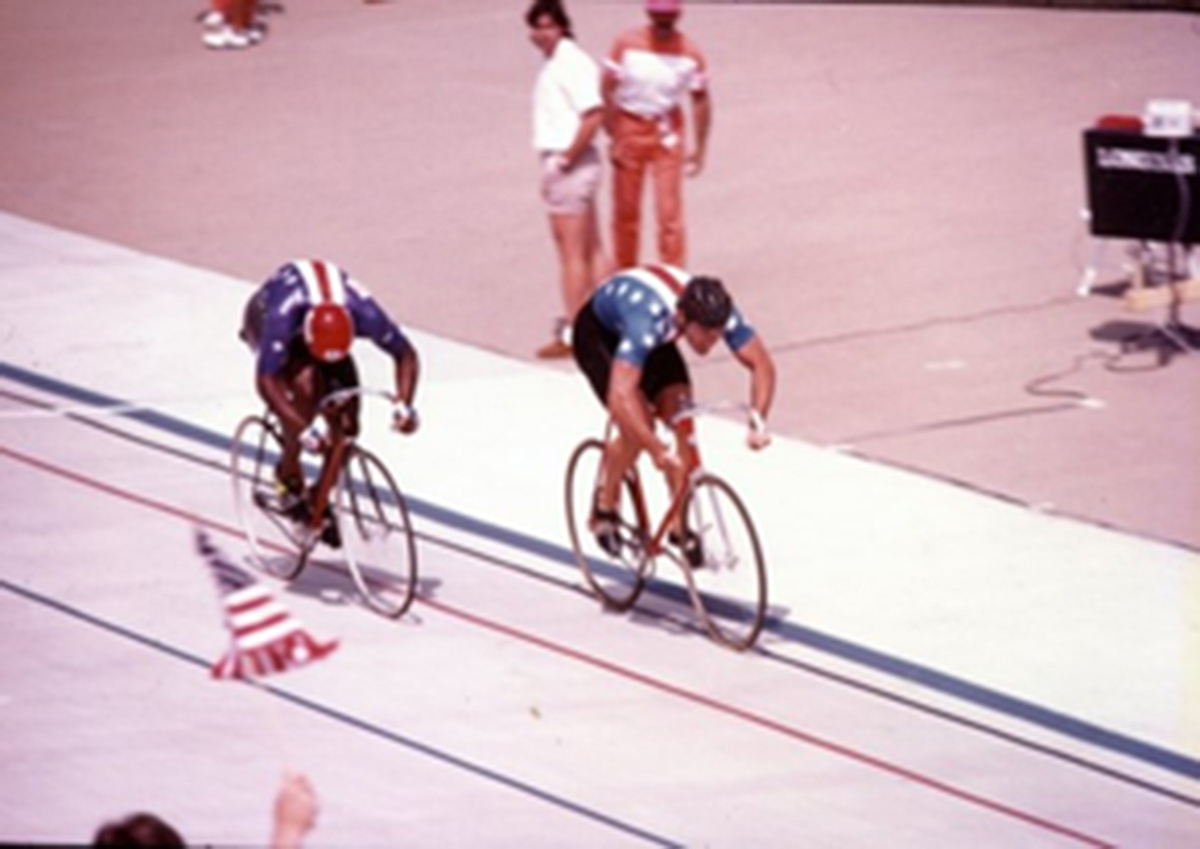
Several factors converged in the following years that would change American prospects significantly moving forward. First was the arrival, via defection from Poland, of the first ever US National Coaching director, Edward Borysewicz. “Eddie B” as he was known to the riders, began training camps at the new Olympic Training Center in Colorado Springs and emphasized Junior development. The results were immediate and at the 1978 Junior World Championships in Washington, DC Lemond led the four-man team time trial to a bronze medal, the first ever medal for US men at the World level. All the riders had come through Eddie B’s camps! He also organized National team trips to the biggest amateur events in Europe following a series of early season training races in Texas. Second was improved corporate sponsorship, namely 7-Eleven, who not only built new velodromes, but allowed many of our best cyclists to become full-time athletes. The fact that the 1984 Olympics would be held on home soil (Los Angeles) was another big boost to our riders. And finally, the dominant Eastern European athletes would not take part due to a retaliatory boycott of their own. Fourteen Eastern Bloc nations led by the Soviet Union and East Germany pulled out of competition, which also allowed the participating nations an extra rider in the road race, match sprint, and pursuit.
The road races were held on the opening weekend. Aged only 15 at the time, I would watch both events while racing a local event in Wyoming. Internationally, American women had long been our best performers and a Women’s Olympic Road Race was being held for the first time in 1984. I favored the young and talented Rebecca Twigg, whom Eddie B. had christened “The Golden Girl”. A world pursuit champion in 1982, she was second at the previous year’s World Road Championship in Switzerland and a permanent resident at the Olympic Training Center. Most of my friends favored the older and more experienced Connie Carpenter-Phinney. (2)
Connie was the undisputed queen of Women’s cycling and an incredible athlete. She first competed in the Olympics in speed skating back in 1972 at the tender age of just fourteen. After an injury kept her out of the 1976 Winter Olympics, she started cycling, winning a silver medal in the 1977 Worlds Road Race and ultimately winning twelve National Championships. She later left cycling to attend college at the University of California-Berkeley where she won a National Rowing Championship in 1980. Upon learning of the inclusion of a Women’s race in 1984, she came out of retirement with the specific goal of winning Olympic gold and then retiring for good. She won the premier American race (and the biggest race in the world for women) the Coors Classic three times, took bronze in the 1981 Worlds Road race and won the 1983 World Pursuit Championship on the track. She had recently married Davis Phinney, who would compete later in the Men’s race, bringing significant media attention to the Olympic couple.
By the time we tuned in on the tiny black and white in my friends RV after our own race, a breakaway had formed with six riders. Both Carpenter and Twigg were there and riding strongly. The Americans main rivals were Maria Canins of Italy, a strong climber and all-rounder Jeannie Longo of France. At the finish, Twigg jumped first and Carpenter, normally an ace sprinter, appeared to be too far back. At the line Carpenter narrowly took the gold with a perfectly timed bike throw. The video of the two Americans in their Stars and Stripes jersey riding alongside each other hugging after the finish was an incredible image with which to begin the Games. With the men’s race immediately following, she took the medal over to their prep area, showing them what it looked like and telling them to get one for themselves! True to her word, she promptly retired and never raced again.
I left the race with local friends, and we watched the men’s race at a neighborhood barbeque on another small TV set. The scene was incredible and not like any we had ever seen at other events in American cycling. Thousands upon thousands of people, many of whom had camped out overnight, crowded every inch of the course! Some estimated that 200,000 spectators were on the roadside that day. American flags were waving everywhere under brilliant sunshine…and “our” riders were delivering!
My intensive “studying” of the US men had me favoring Thurlow “Turbo” Rogers, who had been US rider of the year in 1983 based on his impressive results (3) in major international races. When the break formed, Rogers was indeed there as was Phinney, a big favorite due to his sprint, and the enigmatic Alexi Grewal. Grewal was no favorite of the coaching staff and won the Olympic Trials to assure his spot because he was certain that otherwise he wouldn’t be selected. He had been our strongest rider at the previous year’s World Championship, ultimately finishing 14th but was notoriously difficult to integrate into a team. He had been dominating the Coors Classic a couple of weeks earlier before being kicked out for a positive doping test that presumably would keep him out of the Olympics. All of that was resolved at the last minute, however, and there he was! Perennial strongman Steve Bauer from Canada was there as well Nestor Mora, a Colombian we knew from the Coors, and two unknown Norwegians.
With Grewal there always seemed to be drama of some sort and this day was no exception. Perhaps the ultimate example in fact! He attacked on the big climb, going solo with two laps to go. He looked strong and smooth, and with a lap to go, he looked every inch an Olympic Gold medalist. Until he didn’t…on the final climb of Vista del Lago he seemed to fall apart…bobbing, weaving, and gasping. He was coming undone! Bauer, now a complete all-around road rider (he had been training with Lemond, who was the color commentator on American television) and not just the criterium specialist of years past, shot of the field and blew right past him! Grewal suddenly, as if hit by lightning, got himself together and rallied to just grab the Canadian’s wheel just over the top. Just. He looked like he could blow up at any minute. Bauer confidently did most of the work (and not for the first or last time) as they approached the finish, and we were all plagued with doubts. Bauer, we all knew, was a MUCH better sprinter than Grewal. Bauer thought so, too and he led it out only to have Alexi charge past, effectively beating him in the first ten explosive pedal strokes of the sprint. Mouth agape and arms flung high and wide, Alexi crossed the line in victorious glory…the most incredible and inspirational finish I had yet seen in cycling. Teammates Phinney, Rogers, and Ron Kiefel followed in 5th, 6th, and 9th respectively for an incredible overall team performance.
Similar success followed on the velodrome. Steve Hegg, a former downhill ski racer, and still a rising star in international cycling, surprised many by setting an enormous personal best time and qualified first in the Individual Pursuit. Many of the American riders, including Hegg, were using newly developed Raleigh aerodynamic bicycles with smaller front wheels, airfoil handlebars, solid chainrings, and rear disc wheels that were state of the art and in many ways ahead of their time. Hegg met race favorite Rolf Gölz of West Germany in the final, taking the lead at the 2500-meter mark and never looking back to take another Gold for the home team. Teammate Leonard Harvey Nitz just overcame Aussie phenom Dean Woods in an exciting final to earn Bronze.
Americans dominated the Match Sprint with Mark Gorski meeting his American teammate Nelson Vails in the final. The two had been strategically kept apart in the lead up to the Games, honing their speed in separate competitions with the long-established Gorski earning fifth at the 1983 Worlds behind Eastern European sprinters and the brash young Vails winning Gold at the Pan American Games. Vails was another media darling who was born in Harlem and honed his speed working as a bicycle messenger and raced with the New York City Skyline painted on his helmet. Gorski won the final 2-0 and America had another great image of the two home riders taking a victory lap arm in arm. Vails made history as the first African American and the first person of African descent to win a medal in cycling.
The Team Pursuit event was a rocky ride for the Americans with crashes, restarts, and all manner of misfortune plaguing them all the way to the final. After only qualifying fifth and then beating Denmark by just .01 of a second in the quarter finals, they finally made it into the final as the favorite against Australia. Their high-tech machines, however, were undone by of all things a toe strap, as Dave Grylls pulled his foot out on the start, forcing them to race the entire final with just three men and ultimately losing by nearly four seconds. Grylls graciously allowed Brent Emery, who had ridden earlier rounds to join Hegg, Nitz, and Patrick McDonough on the medal podium.
The final event was the 100-kilometer Team Trial featuring stalwarts Phinney and Kiefel, along with long time top American time trialist Andrew Weaver and a young rider many called “The Next Lemond” Roy Knickman. Kiefel, significantly had been part of that historic 1978 Junior squad. Team captain Phinney, who had taken a risk in the Road Race by wearing a skin suit in the heat was conservative this time and elected not to use rear disc wheels. The Italians used discs front and rear and roared to victory in well under two hours and over four minutes clear of second placed Switzerland. Riding otherwise very aero machines, the Americans were just 19 seconds back to earn bronze.
Some of our other riders, most notably the Points Racers, performed well below expectation and Rolling Stone magazine broke a story in January of the following year that at least partially explained it. Several riders including Hegg and Nitz had used the immoral but not illegal practice of blood boosting in a hotel room prior to the games. Team officials had long debated using this process of removing blood, separating out the red cells and freezing them and then later reinfusing them for improved oxygen transport to the muscles. However, the decision to finally do it was made at the last minute and many riders were forced to use relatives’ blood and some got ill. Despite the ensuing controversy, several of the 1984 US Olympians went on to promising professional careers and even raced in the Olympics again. US cycling sold more racing licenses than ever, but our teams have never achieved this level again. At the 1988 Olympics Americans won just one medal, a bronze. Five medals in 2016 including two golds, and six medals in 2024 including three golds have been our best performances since. Perhaps 2028’s Olympic return to Los Angeles will see another American Gold Rush!
Notes:
- In 1912 at Stockholm, Carl Schutte took a bronze in the Individual Time Trial and led the team of Alvin Loftes, Albert Krushel, and Walter Martin to a bronze in the Team Time Trial.
- Young readers will recognize her as the mother of Taylor Phinney, a three-time Olympic cyclist himself from 2008 through 2016.
- Second in Italy’s Settimana Bergamasca, third in Italy’s Giro del Regioni, and perhaps most importantly fourth in Eastern Europe’s Peace Race, the biggest amateur stage race in the world against the best competition.

